Search Results
Fine Jewelry University Articles matching: “blue diamond necklace”
Showing only FJU Article results. Click here to show all results.
Fine Jewelry University (Show All FJU Articles)
-
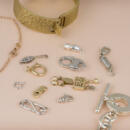
Types of Jewelry Clasps
… for you. History of Jewelry Clasps Jewelry clasps are a small but important component of many types of jewelry like necklaces, bracelets, and anklets. Clasps allow for easy attachment and removal of the jewelry and provide a secure way to … known clasp style. This type of clasp was often made from softer metals like gold or copper and used to fasten necklaces and bracelets. The hook-and-eye clasp was also used by the Greeks and Romans who often embellished them with gemstones …
-
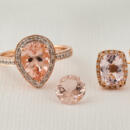
Gem in the Spotlight: Morganite
… gemstone for jewelry. Its wide range of soft pinkish colors makes it highly desirable as it compliments most skin tones and complexions. It is entirely appropriate for everyday wear, and it can be worn as rings, pendants, earrings, necklaces, bracelets, pins, brooches, or whatever else you can think of. Morganite is considered very affordable, especially allowing for its rarity. But, it may be hard to find in local jewelry stores as it is still relatively less popular than…
-
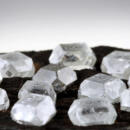
Is a Lab Grown Diamond Right for Me?
Picking a diamond for your engagement ring is a big decision. For most of us, buying a diamond is a significant financial undertaking… don’t have (anyone remember their refractive indexes from high school physics?). Even more unfortunately, the diamond industry suffers from a lot of misinformation and paranoia both from inside the trade and from outside observers. I have … conflict diamonds (both wild falsehoods). On the other hand, I have heard some in the industry refer to lab grown diamonds as fakes (also completely false). We’re here to help cut through some of the rhetoric, so you can make an informed …
-
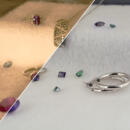
Gem in the Spotlight: Alexandrite
Emerald by day, ruby by night, more expensive than diamond and more illustrious than sapphire, emerald, or even ruby, alexandrite has been known around the world as one of the… source the stone will reflect more of the accent colors of light. Since fluorescent light has a stronger greenish-blue component, the stone appears greener. Under candlelight, which has a much stronger red/orange component, the stone …
-
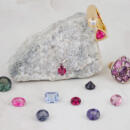
Gem in the Spotlight: Spinel
…, it should be treated and stored with care. Its Mohs hardness of 8 puts it on par with Topaz. It’s softer than diamond or sapphire but harder than quartz, tourmaline, and peridot. With proper care there’s no reason why a piece of spinel … of all time. Spinel was first made in a lab over 100 years ago when scientists who were trying to synthesize blue sapphire wound up creating spinel by mistake. Since then many processes have been used and perfected to create spinel in …
-

How Are Lab Grown Diamonds Made?
The dream of making a beautiful and valuable diamond from simple carbon has long captivated the imagination of scientists and visionaries alike. Just like the alchemists…, many have tried to achieve this impressive feat. We have only recently been able to produce gem quality, lab grown diamonds that are large enough to be used in jewelry. But, how is it done? Early Efforts Throughout history, many people …. Henri Moissan was one of the early pioneers in the field. In 1893, he claimed to have successfully made a diamond by heating charcoal to 3,500 degrees Celsius inside a carbon crucible. Many attempts were made to reproduce his techniques …
-
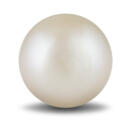
Gem in the Spotlight: Pearl
… famous figures, including Napoleon III and Elizabeth Taylor. During Taylor’s ownership, the pearl was set into a necklace designed by Cartier, which also included diamonds and rubies. The La Peregrina pearl is one of the largest and most …! Keep in mind though that pearl rings in particular are not intended for everyday wear. Rings take more abuse than necklaces or earrings, so wear your pearls rings for special occasions to help them last. Restring Often: Even following all …
-
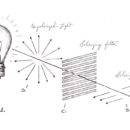
The Magic of Polarized Light
…refractive gems are sapphire, tourmaline, and moissanite. These are contrasted with singly refractive (SR) gems like diamond that only bend light in one direction. Gemologists use the term birefringence to refer to how doubly refractive a … and our day-to-day lives. We hope you enjoyed this article, and remember that if you are in the market for a new diamond or gemstone our trained gemologists have the tools, understanding, and experience to help find the … see through the surface of water or only capture the reflection. Modern 3D movies: Unlike old school red and blue 3D movies, modern 3D uses two images along with a pair of glasses that have polarizing filters for lenses. This tricks your…
-
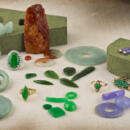
Gem in the Spotlight: Jade
… like splitting hairs, but it actually has a big impact on how gems are worn and what they can handle. We all know diamonds are the hardest gem commonly available on earth. If you scraped them together, a diamond would scratch a piece of …mark on the diamond. However, if you decided to smack both gems with a hammer (please don’t try this at home), the diamond would have a greater chance of shattering than the tougher jade. Nephrite: A silicate rich in calcium, iron and …